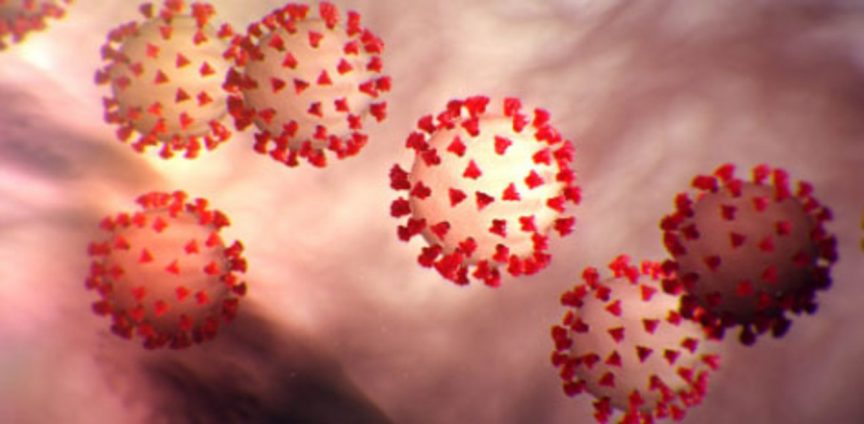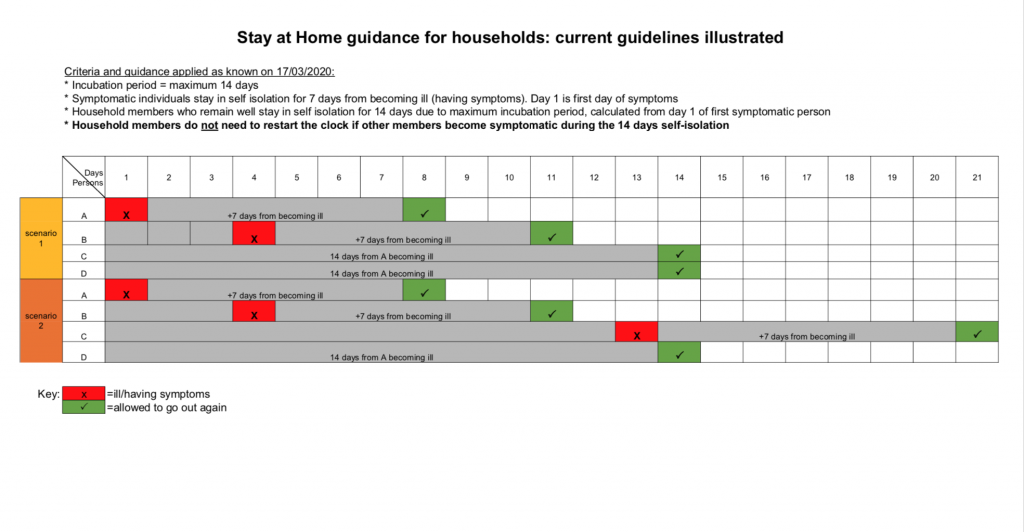As you can imagine, my phone has been ringing off the hook recently with requests for media interviews and questions from friends and family. The coronavirus pandemic, and our knowledge of this disease, is changing literally by the hour and I know that is causing a lot of anxiety and confusion, so I thought I’d try to clarify a few issues here. I am writing this on March 18th 2020, so if you are reading this much later, please bear in mind that the situation may have changed.
I am privileged enough to have weekly updates via a conference call with the Deputy Chief Medical Officer. My last call was yesterday and going forward our calls will be twice weekly. The need for that increase is a reflection of the rapidly changing vista in which we live.
So let’s start with some clarification of where we are and what this means in real terms…..
What is social distancing and who should be practicing it?
We should ALL be practicing social distancing where possible. It is most important for those most vulnerable to Covid19 so that means the over 70’s and anyone who would be eligible for a flu vaccine on the NHS, except young children who are otherwise well. (I will come back to this on the section on school closures below). We need to take extra special precautions for those taking immunosuppressive drugs or chemotherapy and we are expecting an update on special measures for that group.
The most important thing we can all do to protect ourselves and our loved ones and communities is to wash our hands regularly. I will post a video later today demonstrating how to do this properly.
Social distancing means
- Reduce all unnecessary social contact
- Stay at least 1 metre apart from other people
- Reduce all unnecessary public transport
- Work from home if possible
- Do not greet with handshakes, kisses or hugs
- Avoid social gatherings – pubs, bars, restaurants, theatres and cinemas
I note that gyms have not (as yet) been included in this advice. I love my HIIT and spin classes and try to go every day that my diary allows. My gym has taken sensible measures to provide hand sanitiser for people to use as they arrive and leave. Exercise is good for both our physical and mental health, and up until Monday, I was still going regularly. I have decided to stop my visits for the foreseeable future and am improvising at home. My rationale for this, is not concern for my own health, but to ensure I protect any vulnerable patients I have contact with in the coming weeks.
Who should be in social isolation and for how long?
The symptoms of coronavirus are a new continuous cough and/OR high temperature. I know some people with chronic lung disease may have a long-term cough and for you, coronavirus may present as a change in your cough. A high fever is a temperature of 37.8 degrees or more.
If you develop these symptoms and you live alone, you should self-isolate for 7 days. If you live with others, you need to self-isolate for 7 days but your household contacts should self-isolate for 14 days. I one of them should become ill during that period, they only need to self-isolate for 7 days after the onset of their own symptoms. The reason for the difference is that in any individual, the symptoms of the virus, in most people, will resolve within a week, meaning that they then don’t pose a risk to others.
In practical terms, if a member of your household develops symptoms on Day 2 of self-isolation, you can revert to social distancing on Day 7, they can revert on Day 9 and the rest of the asymptomatic household can revert on Day 14. If someone develops symptoms on Day 12, that individual must continue to self-isolate for 7 days from the onset of his or her symptoms, but the rest of the household can revert to social distancing on Day 14 as planned.
I’m afraid, unless you have had a test confirming coronavirus, if you should develop recurrent symptoms, you need to practice self-isolation under the same protocol again.
Who is tested for coronavirus and how is it done?
At the beginning of this outbreak we were testing people with nasal and throat swabs either in their homes (arranged through 111) or at special testing centres. Currently testing is reserved for patients who are hospitalised, the critically ill and there is some testing being done in residential institutions. The rationale behind this has been to focus resources on where they are most needed allowing a fast turnaround for results when it is most important.
I know this is frustrating for many as you won’t know If you have had Covid19, but the government and healthcare systems have had to use resources carefully. The issue of testing will be changing again as more testing facilities are being made available and I suspect that as testing facilities increase, those in frontline services will be prioritised in order to keep that workforce at work wherever possible. If an individual with symptoms tests negative, they would be able to return to work without the need for prolonged self-isolation.
There is also work being done on a blood test to check for antibodies to coronavirus, which would help us to diagnose the infection retrospectively. We are still learning about this new virus, but current thinking is that for most of, once we have had the infection, we develop an immunity, so knowing you have had it, would mean you could continue to work despite new symptoms. This test is several weeks away, and we don’t know, as yet, who will be offered it.
At the moment, coronavirus seems to be a stable virus, which doesn’t seem to be changing like the flu virus, but there is a possibility that it could alter, and we could see another outbreak next winter.
A lot of work is ongoing in trying to develop a vaccine
What about mass gatherings?
The scientific evidence to date, suggests that banning mass gatherings in its own right doesn’t have a huge impact on risk. In fact, it is the smaller gatherings in pubs and bars before and after such events that pose a greater risk.
We also have to be mindful, that such events usually require the attendance of first line responders and going forward, we may need all these professionals deployed to help with those who are significantly ill with the virus, which is why the advice on mass gatherings is under constant review and may change.
Why have we only just closed schools?
Unlike flu, children don’t seem to be “superspreaders” of this virus and those that are infected generally have a mild illness. Shutting schools will have a huge impact on the ability of parents to work, which is why the Government have staved off making this decision up until now. Current advice is to avoid leaving children with grandparents if possible as they will mostly be the very people we are trying to protect. Children of “frontline workers” will still be able to attend school, in order to allow their parents to work but we are not clear as yet, who fills these criteria. The PM mentioned health and social care workers and went on to mention delivery drivers supplying supermarkets. I am told that we can expect a more definitive list of who constitutes a healthcare worker tomorrow, but I am mindful that, that will lead room for interpretation. Do the secretarial or reception staff in my surgery constitute healthcare workers for example? I know my job would be nigh on impossible without them.
Is ibuprofen safe to take if you think you have Covid19?
Ibuprofen is one of a family of drugs called NSAID’s, (other commonly used NSAIDs include Naproxen and Diclofenac). There has been a lot of fake news around this in the last 48 hours. Eg. There are NOT 4 young people in Cork ITU, etc. These are bogus WhatsApp messages. There is no current evidence to link CV19 and the use of NSAID’s. Advice is based on previous experience with respiratory illness. It is “suggested that at the moment, for patients who have confirmed CV19, or believe they have CV19, that they use Paracetamol in preference to NSAID’S. Those currently on NSAID’s for other medical reasons (eg arthritis) should not stop them”.
This is lifted straight from the NHS England advice sent to doctors today. However, as I have said, situations change and evidence changes, so this advice may change. I will endeavour to keep you updated.
I hope this is useful to you. I started writing it this morning and then have been full on with various media interviews and as I came to post it now, I have had to change some of the advice, which tells you just how quickly all of this is moving!
Stay well
Dawn


